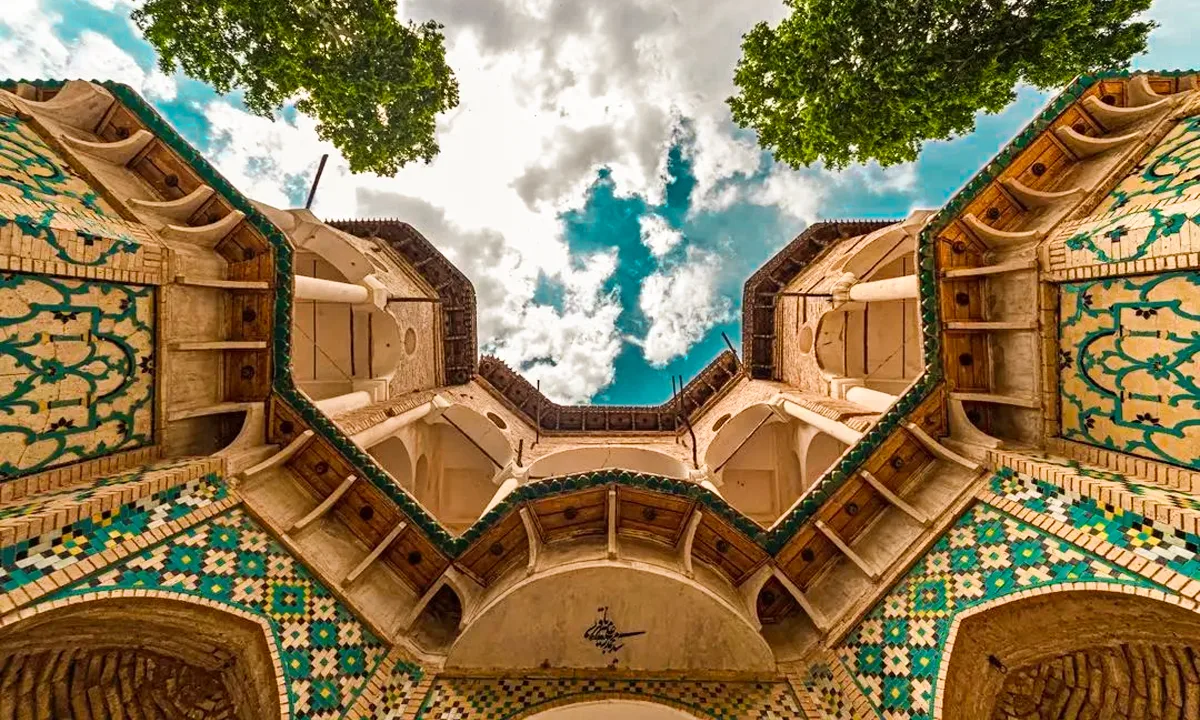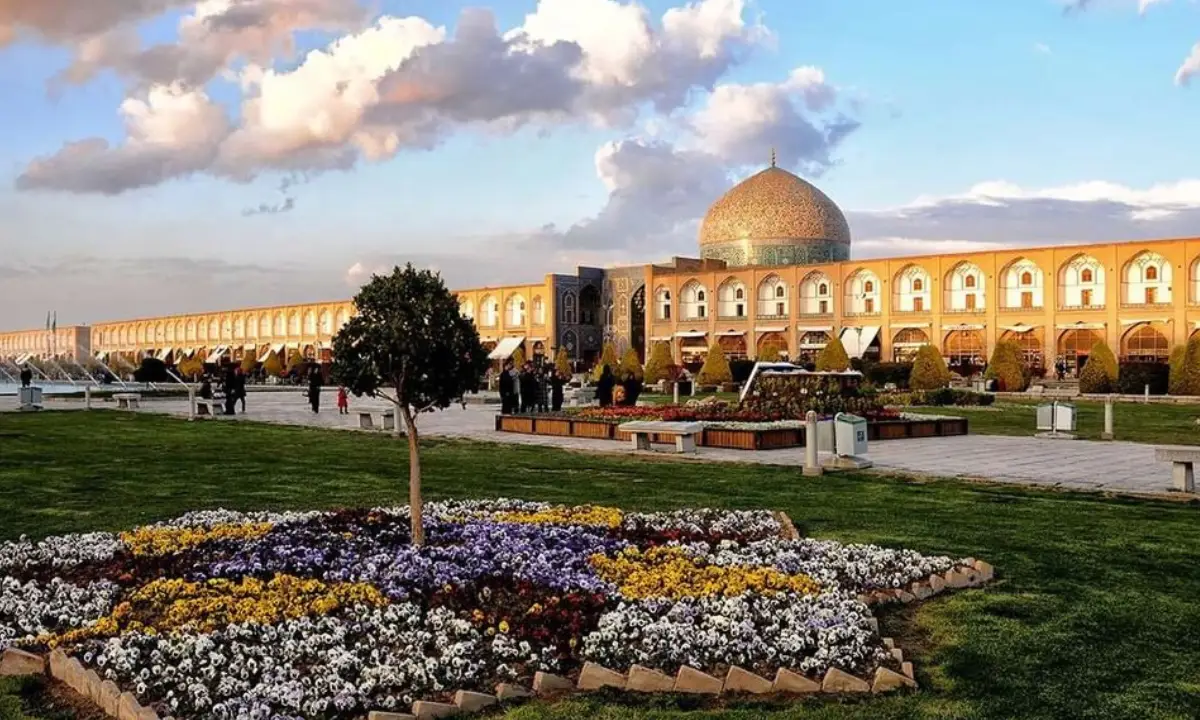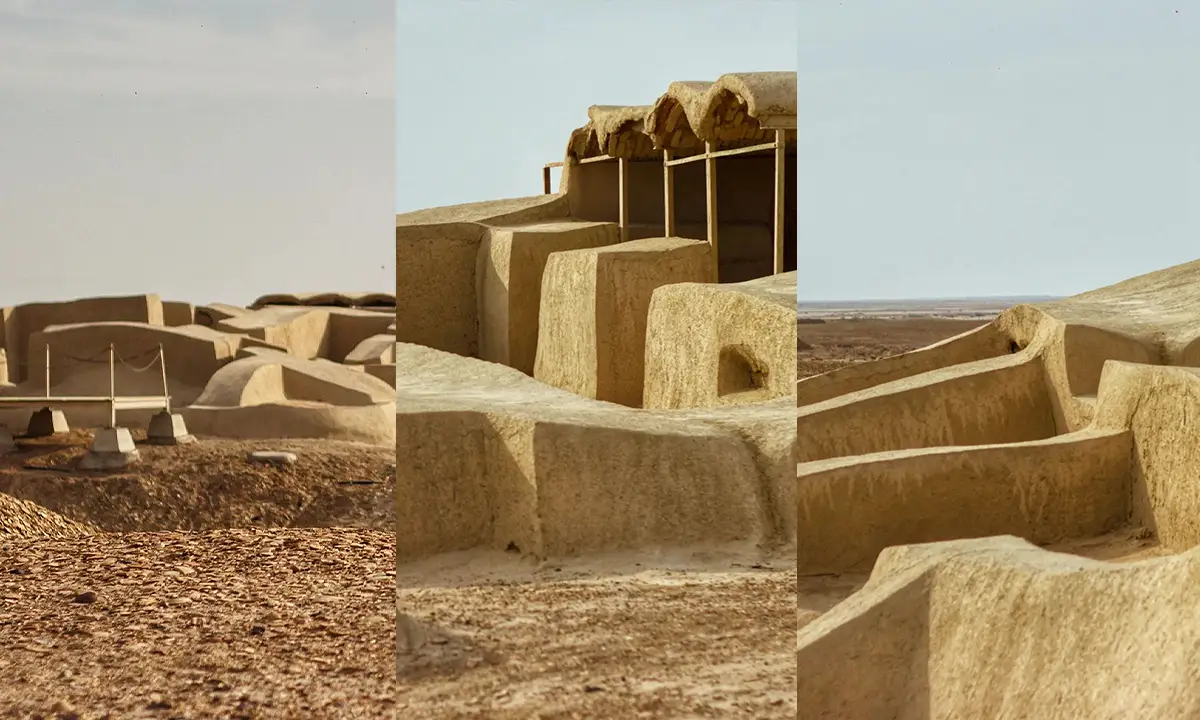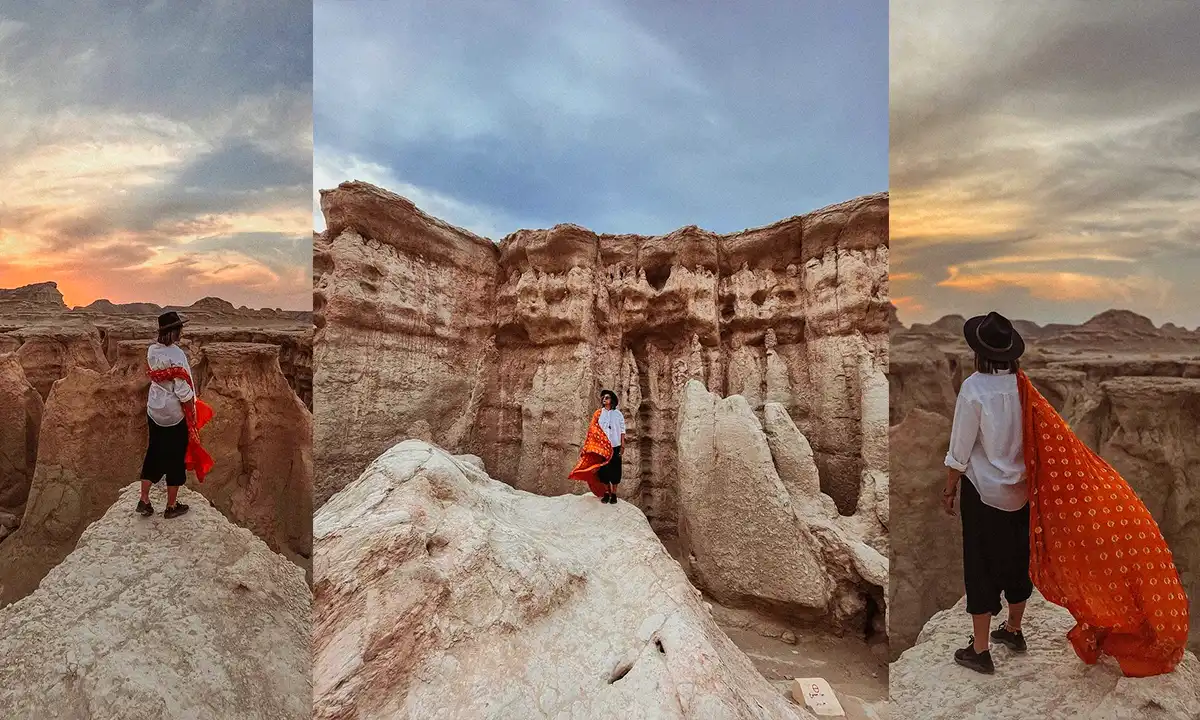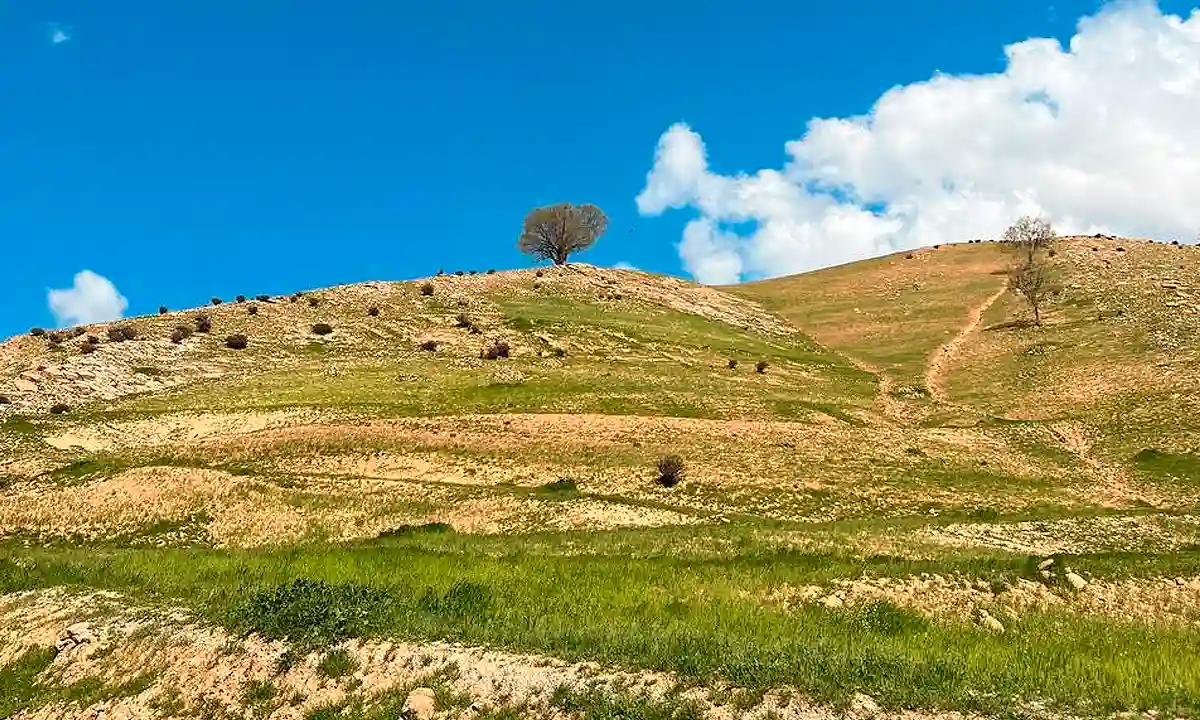Alamut Castle | Things you should know before you go
![]() Author : asal | Date : Sunday 27 July 2025 11:28
Author : asal | Date : Sunday 27 July 2025 11:28
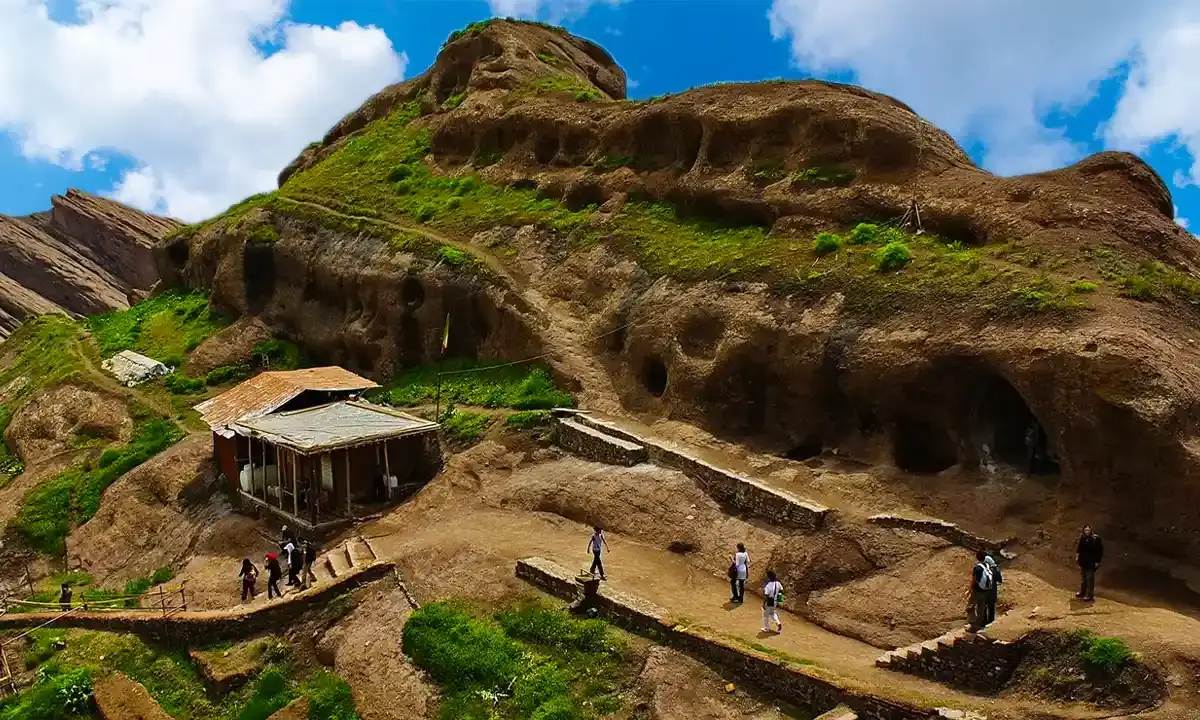
Before visiting Alamut Castle, it's essential to know its historical context as a fortress of the Assassins, making it a significant site in Iran. The journey to Alamut Castle offers breathtaking views, but prepare for a hike to reach its majestic ruins. Exploring Alamut Castle, you'll be transported back to medieval times, amidst tales of intrigue and resilience. Ensure you have enough time at Alamut Castle to fully appreciate its architecture and the panoramic landscapes it oversees.
What is the history of the Alamut Castle?
Alamut Castle's history is rich with legends, notably featuring Hassan Sabah. After being ousted from the Seljuk court, he ventured to Egypt, absorbing Ismaili teachings. Returning to Iran, Sabah searched for the ideal base, ultimately seizing the formidable Alamut Castle in Qazvin by overthrowing the local ruler, marking the start of his legendary reign.
Hassan Sabah acquired Alamut Castle in 1093 AD, compensating the ousted ruler with 3000 gold dinars. Strategically nestled in the Alborz mountains, its formidable location made it a stronghold for Sabah's political and military endeavors.
Alamut Castle's decline began with the Mongol invasion in the 13th century. Hulagu Khan's forces overran it in the 1260s, burning its library and breaching its defenses. The once impregnable fortress was partially destroyed and repurposed as a place of exile.
Simultaneously, Ismaili followers briefly recaptured Alamut Castle, continuing their political and military efforts. However, during the Safavid era, the castle underwent modifications to serve as a secure government prison, marking a significant shift in its use and structure.
In the Qajar era, government neglect and illicit treasure hunts led to further damage to Alamut Castle. Once abandoned, it fell into disrepair, but its legacy endured. Recently, it has gained recognition as a site of significant historical and archaeological value.
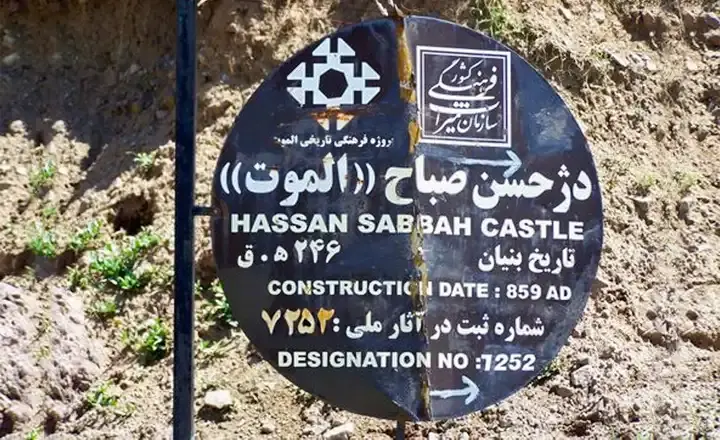
Why Do They Call it Alamut?
The name "Alamut" merges "Al," derived from "Alah" or "Aloo," meaning eagle, with "Amut," translating to nest. Legend holds that Deylaman kings discovered the site with an eagle's guidance, inspiring the construction and naming of the castle as "Eagle's Nest." Alternatively, "Amut" is thought to mean "learned" in the Gilak and Deylami languages, suggesting Alamut could also signify "learned from the eagle."
Where is Alamut Castle?
Located in Qazvin Province, northwest Iran, Alamut Castle is a remarkable example of ancient fortifications. Today, about 30% of its original 20,000 square-meter area remains, with construction dating back to the 9th century. Situated on a hill at 1800 meters, the castle is divided into distinct upper and lower sections, surrounded by quadruple walls and natural cliffs, enhancing its reputation as an unassailable fortress.
What are the Different Parts of Alamut Castle?
Alamut Castle, a historical fortress nestled in the Alborz Mountain range of Iran, comprises several key parts that contribute to its architectural significance and strategic importance. While much of the castle now lies in ruins, historical records, and archaeological excavations have provided insights into its original structure. The different parts of Alamut Castle include:
- Entrance Gate and Access Path: The castle's access path is a narrow, winding route carved into the rock, leading up to the main entrance gate. This path was designed to be easily defensible.
- Upper Castle (Alamut Fortress): The upper section of the fortress itself, situated at the peak, served as the administrative center and the residence of the leaders. It contained the main living quarters, halls, and strategic lookout points.
- Lower Castle: This area housed the soldiers, servants, and other staff. It included barracks, storerooms, workshops, and kitchens.
- Watchtowers and Ramparts: Strategically placed around the castle, these structures were used for surveillance and defense against invaders.
- Water Reservoirs: Given its mountainous location, collecting and storing water was crucial. The castle had several reservoirs carved into the rock.
- Library: Although now destroyed, Alamut Castle was once famous for its vast library, housing a significant collection of texts on various subjects, including philosophy, astronomy, alchemy, and religion.
- Gardens and Agricultural Terraces: The inhabitants cultivated gardens and terraces on the castle's slopes, ensuring a supply of food and medicinal herbs.
- Secret Passages and Escape Routes: The castle featured hidden passages and tunnels for escape during sieges or surprise attacks.
These parts of Alamut Castle, though now mostly in ruins, highlight its historical role as a formidable stronghold and center of learning. The strategic design and construction techniques reflect the ingenuity and resilience of its inhabitants over the centuries.
Tips to Visit Alamut Castle
- Access: To enter the castle, you'll need to climb 400 stone steps to the top.
- Best Time to Visit: Opt for late spring and summer, when the weather is most favorable for exploration.
- Weather Considerations: Beware of heavy snowfall, which can close roads and the castle itself.
- Hydration: Bring a bottle of water, as you won't find any available during your ascent.
- Footwear: Choose the right shoes for a safe and comfortable climb.
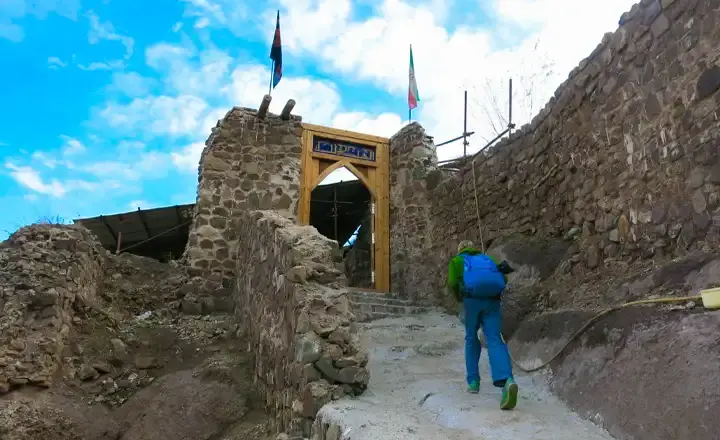
When is the best time to visit Alamut Castel?
The best time to visit Alamut Castle is during late spring and summer. During these months, the weather in the region is most favorable, offering pleasant temperatures and clearer paths for exploration. This period provides an optimal experience for hiking up to the castle and enjoying the surrounding landscapes.
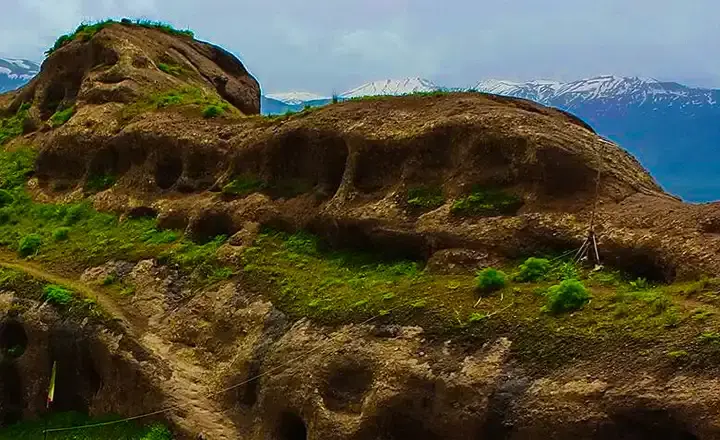
What is the Alamut castle architecture?
Alamut Castle's architecture, though largely in ruins today, reflects a blend of military strategy and natural adaptation, characteristic of medieval Persian fortresses. Here are some key aspects:
- Strategic Location: Perched on a high rock at an altitude of 2100 meters, the castle leveraged its natural surroundings for defense, making it difficult for enemies to launch a surprise attack. Its position within the Alborz mountain range offered a commanding view of the surrounding valleys, essential for monitoring approaching threats.
- Defense Mechanisms: The architecture incorporated features designed for defense and sustainability. This included:
Narrow Access Paths and Gates: The main access routes were deliberately narrow and winding, making it hard for invaders to reach the castle gates and allowing defenders to easily repel attacks.
Walls and Ramparts: Built to withstand sieges, the walls were constructed from the local rock, blending with the natural terrain and providing robust fortification.
- Watch Towers: Strategically placed for surveillance, these towers enabled guards to spot incoming threats from afar.
- Internal Structures: Inside, the castle was a self-contained community, with residential areas, storerooms, workshops, and a mosque. The living quarters were constructed to accommodate the garrison and their leaders comfortably.
- Water Reservoirs: Given its elevation, securing a water supply was crucial. The castle featured sophisticated water reservoirs to collect and store rainwater, ensuring sustainability during sieges.
- Library: Alamut Castle was renowned for its vast library, signifying its role as a center of learning and knowledge. It housed an extensive collection of manuscripts on various subjects, reflecting the intellectual pursuits of its inhabitants.
- Adaptation and Evolution: Over centuries, the castle's architecture evolved to reflect changes in military technology and the needs of its occupants. It adapted to incorporate new defensive features and accommodate the growing community within its walls.
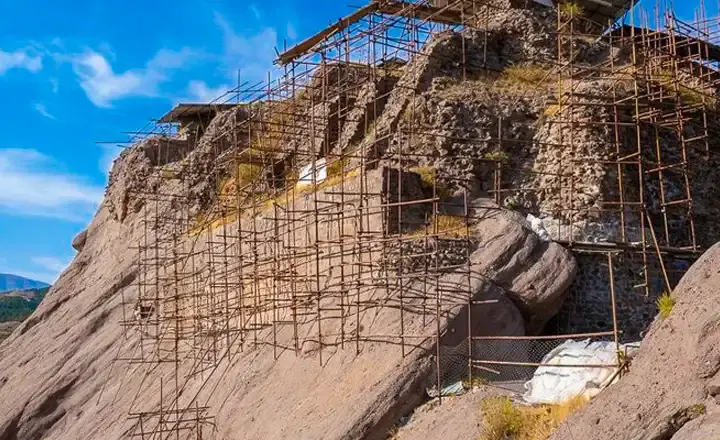
Last Word
Exploring Alamut Castle reveals more than just ancient ruins; it unveils a legacy of architectural ingenuity and historical depth. Before setting foot on its storied grounds, understanding its significance—from its strategic positioning to the tales of resilience it harbors—enriches the experience. Equip yourself with knowledge, essentials, and curiosity, and you're ready to deeply engage with the enduring spirit and the captivating narratives that Alamut Castle, a jewel of Iranian heritage, continues to tell.
FAQ
What is the best time of year to visit Alamut Castle?
The optimal time to visit Alamut Castle is from late spring to early autumn, particularly between May and September. During these months, the weather is most favorable, offering pleasant temperatures and minimal rainfall, which makes the hike up to the castle and exploration of the ruins more enjoyable.
How do I get to Alamut Castle?
Alamut Castle is located in Qazvin Province, Iran. The most common way to reach the castle is by driving from Qazvin city to the village of Gazor Khan, which is the closest base to the castle. From there, visitors can hike up the trail leading to the castle. It's advisable to use a local guide or join a tour for the best experience and to learn about the site's history.
What should I bring with me when visiting Alamut Castle?
Visitors should prepare for a moderate hike, so it's essential to wear comfortable hiking shoes or sturdy sneakers. Also, bring plenty of water, sun protection (like sunscreen, hats, and sunglasses), and snacks. A camera is also recommended to capture the stunning views and the historic ruins. Don't forget to bring a light jacket, as it can get cooler at higher altitudes, even in summer.
Are there any facilities at Alamut Castle?
Facilities at Alamut Castle are minimal, reflecting its status as an ancient ruin. There are no onsite amenities like restrooms, cafes, or shops. Visitors should plan to be self-sufficient, bringing all necessary food, water, and supplies with them. It's also wise to visit the restroom in a nearby village before starting the hike up to the castle.

